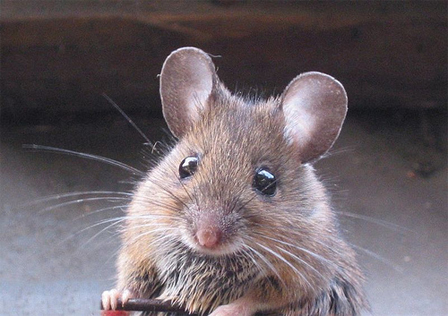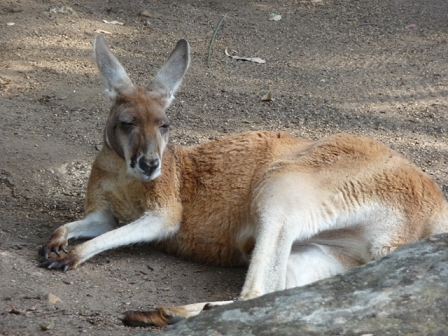Erstellt am: 26. 1. 2012 - 11:38 Uhr
Save the Mice, Kill the Kangaroos!
Kill the kangaroos to save the mice! It`s the strangest ecological rallying call I`ve ever heard. But Professor Mike Archer of the University of New South Wales, who describes mice as “wonderful, cute and extraordinarily bright”, is deadly serious. He wants to confront vegans and vegetarians with the bloody fall-out of intensive arable agriculture business in his country which he has likened to a “blitzkrieg” on the local environment.
More on Australia
- The Kangaroo Trail An escapist mountainbike odyssey
- Meeting Moby Dick - Whale watching in Australia
- The Climate Change Front Line A postcard from an Australia that is feeling the heat of global warming
- A Sydney Snap Shot The economic protests struggle to grow roots Down Under
I always like a man who dares to confront easy assumptions but this is going to take some explaining, and I’d like to let Professor Archer do this himself: “I guess my issue is that some vegans and vegetarians really do believe that no animals are killed to produce the food that they eat. The reality is that animals that are not very different to us in terms of feeling pain and feeling empathy for one another are killed by the thousand to produce a vegetarian meal.”
Archer says that when land is chosen to grow a grain monoculture, thousands of Australian animals and plants are cleared for every hectare of arable land and this destroys the local biodiversity. And that is only the beginning; says Archer, because “ploughing and harvesting kill small mammals, snakes, lizards and other animals in vast numbers.” The monocultures then attract plagues of mice, and in Australia they are deliberately poisoned, with hundreds being killed per hectare of crop. New research has shown that mice are far more sentient than we ever thought. Archer is particularly tickled by new research that mice sing “love songs” to attract other mice and rather than being genetically programmed, these songs change and develop as a mouse grows older.

themices.com
That is all very cute. And of course it is sad if mice are killed by grain farmers. But what is Professor Archer`s serious point apart from making vegans feel a bit less smug and a bit more guilty? After all, he accepts that intensive crop production is going to play a big role in keeping the population fed.
Well, as the leader of an “Evolution and Life Systems Research Group”, Archer wants us to see meat production versus grain production in a more nuanced way and perhaps accept that, rather than switching in ever greater numbers to vegetarianism, it is more natural being as omnivorous as we have been for the past 8 million years.
Archer says that half of Australia’s unique native vegetation has been lost since the arrival of European settlers, “mostly to increased production of monocultures of introduced species for human consumption.” If vegetarianism became the norm and Australians had to get all their nutrients from arable agriculture, argues Professor Archer, more of this natural vegetation would be destroyed and this would have a devastating environmental impact.
Besides, he says, pastoral farming doesn’t deserve its bad reputation.
The farming of cattle, with their methane-intense farts, can be very environmentally destructive especially when forest land is cleared for grazing, as happened in Brazil, and when they are fed on grain. But Professor Archer says that 98% of Australian cattle live on grass alone and most of them live on the 70% of the arid and harsh Australian continent called rangelands – areas of primarily native grass and shrub land. “Grazing is the only way humans can get substantial nutrients from this vast swathe of the continent,” says Archer.

christian cummins
It`s better still, though, to eat kangaroos, says Professor Archer. Kangaroos are of course (unlike mice) an indigenous species and have thrived since the arrival of European settlers. There are more of them roaming the continent that ever before. Their meat is considered a healthy source of protein because it typically only contains 2% fat and for the past 4 decades a kangaroo industry has flourished, with the numbers of animals taken for consumption far below the levels scientists say might threaten the sustainability of the species. Professor Archer says the industry has helped change the image of the kangaroos, which were long seen as pests competing with cattle. “If we can turn that around and get the rural and regional Australians to recognize the value of sustainably wild harvesting and utilizing kangaroo meat, we would be having an enormous positive impact on the environmental impact of the continent.”


